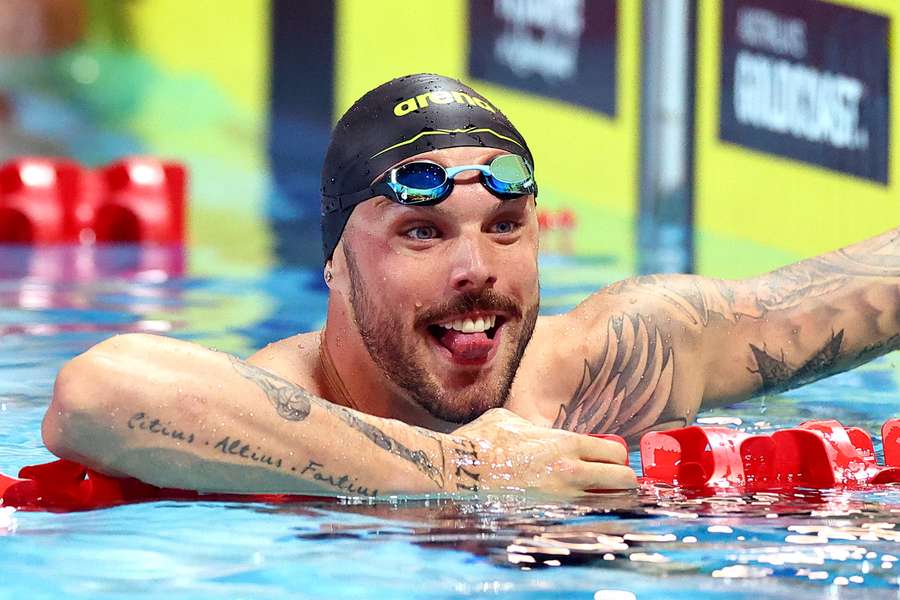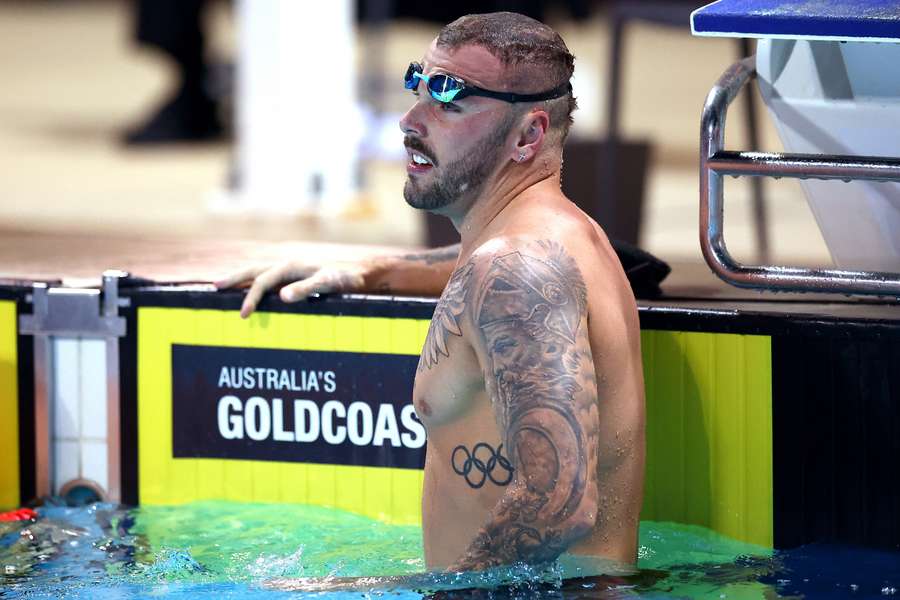Chalmers hopes going public with mental health battle helps others

Chalmers, who came second to American arch-rival Caeleb Dressel in the 100m freestyle at the Tokyo Olympics, having won gold at Rio in 2016, stepped away from the sport for a period last year.
It followed intense media attention on a supposed rift with former girlfriend Emma McKeon - who won seven medals in Tokyo - and teammate Cody Simpson, who are now a couple.
"I'd like to hope so," Chalmers told the Sydney Daily Telegraph in comments published Saturday on whether talking about his demons may have influenced others such as British great Peaty.
"I've had to step away from the pool a couple of times with mental health problems and it's something that's not easy at all - especially for guys.
"But standing up and saying 'This is how I'm actually feeling, these are the pressures that sport gives us', hopefully makes it easier for the next generation coming through."

Triple Olympic gold medallist Peaty - one of the biggest names in the sport - announced this month he will miss the world championships in Japan in July due to ongoing mental health battles.
Chalmers and Peaty spent Christmas together in Australia and spoke often about the subject.
"Someone like Peaty, who is one of my best mates, who I've ridden the highs and lows with since 2016, for him to come out and spend Christmas with me and being able to talk about those challenges was probably not only good for him, but really good for me too," Chalmers said.
"We're all humans at the end of the day. We all face the same problems everyone does.
"And mental health plays a major part in our everyday lives and I have been impacted by it massively over my career and I know there's so many people that also probably suffer in silence a little bit.
"So if I can make the stigma a little bit easier and pave the way for the next generation coming through, then I think I've done my job in the sport."

